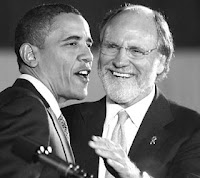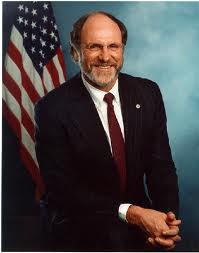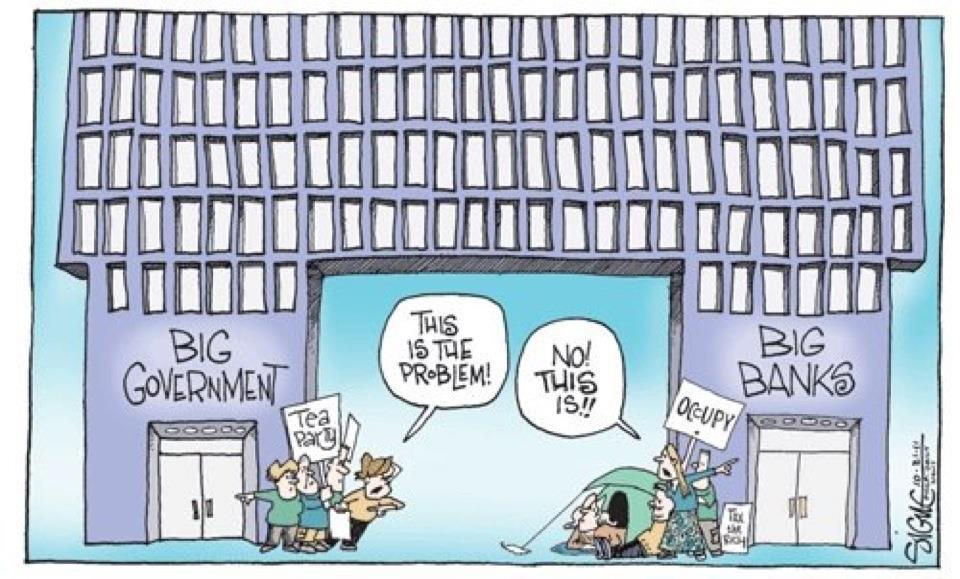Reading on a cold Sunday evening.
- Read more about Reading on a cold Sunday evening.
- Log in or register to post comments
Although it is gonna take me a minute to get there.
Here's why the MF Global story matters to you.
Let's just suppose that you own one share of Apple and the caca having hit the fan, your brokerage firm goes upside down ... or boobs up, as my beloved partner used to say.
Here's the nasty suprise heading in your direction.
You don't really own that share of Apple as it has been purchased with your funds but is being held in your brokerage firm's name supposedly for your benefit.
What is even more interesting is that you have most likely given your brokerage firm permission to pledge that share of Apple as collateral for it's own purposes, be it trading or borrowing or whatever they might want it for when you signed that paperwork you didn't read.
Here's why the MF Global story double matters to you.
The customers of MF Global weren't trading stocks which were purchased in MF Global's name, they were holding segregated commodity accounts, US government treasuries and in some cases physical product most typically gold bars, all of which were held in their own name with MF Global being paid to provide secure housing.
This means that without specific authorization which it mostly never recieved, by law MF Global should not been able to pledge those assets for it's own purposes.
The law was ignored by MF Global but much more importantly, our government regulators who are supposedly in the employ of the victims of this crime actually abetted this theft in the following fashion:
Faced with the choice of the typical Chapter 7 liquidation for a commodities brokerage concern wherein customer assets are untouchable, the SEC deliberately approved the Chapter 11 reorganization of MF Global, the one of two bankcruptcy options that threw customers assets into the entire pot of stuff to be carved up among all of MF Global's creditors.
What's even more interesting is that the SEC did this secretly without contacting the Commodities Futures Trading Corporation which probably is the governmental entity that should have made this decision as it has handled most if not all previous commodity brokerage failures and had experienced people and proven systems in place that would have more likely protected customer accounts.
So to make a long story short federal regulators have abetted the theft of money from private citizens in favor of in this case ... as usual ... JP Morgan and Goldman Sachs, with the now addition of George Soros as the likely discount purchaser.
Nice eh?
Not to beat a dead horse, but remembering the words of President Barack Obama.


Ok, so here's my first ... Ok, Ok second question,

Just axin.
Now for Chris Whalen's question from  The Institutional Risk Analyst.
The Institutional Risk Analyst.
"So why is it that the Large Media have such trouble reporting this story? The fact seems to be that the political powers that be in Washington are protecting JPM CEO Jaime Dimon from a possible career ending kind of stumble with respect to MF Global. By stuffing the commodity customers of the broker dealer via an equity bankruptcy resolution supervised dutifully by SIPIC, JPM and Soros apparently get to benefit at the expense of the commodity customers of MF Global. This situation stinks to high heaven and everyone on the Street we've spoken to about the matter knows it. As the article below notes:
"Rather than being treated as a bankruptcy of a commodities brokerage firm under sub-chapter IV of the Chapter 7 bankruptcy law, MF Global was treated as an equities firm (sub-chapter III) for the purposes of its bankruptcy, and this is why the MF Global customer money in so-called segregated accounts "disappeared".
The effort by former New Jersey governor and MF Global CEO Jon Corzine to save his firm by stealing customer funds seems to warrant further discussion, yet instead we have silence. Here's a question: When is Corzine going to be indicted for securities fraud and other high crimes and misdemenors? The answer seemingly is that the Obama Justice Department is afraid to go there. Thus the fraud at MF Global continues and Washington does nothing to inconvenience the banksters as customer funds are expropriated.
But please, to our friends in the Big Media, could we stop saying that we don't know the location of the missing $1.6 billion of client funds from MF Global? The money is safe and sound at JPM and other counterparties. As with Goldman Sachs et al and American International Group, the banks have been bailed out at the cost of somebody else. And the various agencies of the federal government are complicit in the fraud."
Mr. Whalen's conclusion feels about right to us with regards to Fox and the Wall Street Journal who the other day "reported" that funds had "VAPORIZED".
But can you imagine The New York Times, MSNBC, CNN, CBS etc. ignoring this story in an election year with a Republican in the White House?
Ya can't ... can ya?
The following article referenced above is from  Clearing and Settlement.com.
Clearing and Settlement.com.
In recent testimony before a Congressional committee, MF Global’s former chief Jon Corzine as well as other MF Global executives said repeatedly the didn’t know where the failed brokerage firm’s $1.2 billion of missing client money was. In fact, MF Global executives knew exactly what happened to the money, as do the regulators who oversaw the firm’s bankruptcy. The so-called segregated customer funds were repeatedly, and legally (through re-hypothication), used as collateral for MF Global loans for 100:1 leveraged bets on European sovereign debt.
A substantial portion of MF Global’s commodity clients cleared their transactions through the Chicago Mercantile Exchange and Comex, owned by CME Group (ticker: CME). The question now looming over CME’s stock is whether the company will be liable for customer losses, as the Commodity Customer Coalition, a group that says it represents some 8,000 investors—including many hedge funds–with exposure to MF Global are not going down without a fight.
Rather than being treated as a bankruptcy of a commodities brokerage firm under sub-chapter IV of the Chapter 7 bankruptcy law, MF Global was treated as an equities firm (sub-chapter III) for the purposes of its bankruptcy, and this is why the MF Global customer money in so-called segregated accounts “disappeared”. In a brokerage firm bankruptcy, the customers get their money first, while in an equities firm bankruptcy, the customers are at the end of the line, meaning MF Global’s creditors, namely J.P. Morgan and other trading counterparties, got their money first, just as AIG’s CDS (credit default swap) counterparties (mainly Goldman Sachs) got their money first when the U.S. government bailed out AIG.
To add further insult to injury for MF Global clients, the firm reportedly unloaded hundreds of millions of dollars’ worth of securities to Goldman Sachs, and others, who then reportedly flipped these securities within a day to George Soros funds.
Ok so whose political party benefits when George Soros is flush with cash?
It all sort of comes together after a while don't it?
The following is the punch line to a white paper by John Roe, and James L. Koutoulas, Esq. concerning the disposition of stolen assets trapped in the MF Global fiasco.
Click anywhere on the excerpt below for a very short and well written paper which also serves as a primer on the how, the what, the who and the why of commodities trading.
Way super double highly recommended.
Commodities accounts were reputed to be regulated by an entity of the federal government known as the  Commodity Futures Trading Commission.
Commodity Futures Trading Commission.
It's true mission however is to assist large Wall Street Banks in their theft of middle class America's wealth.
Click this little gear here for our recent piece concerning former Goldman Sachs great, Democratic Senator from New Jersey (is that better Robert?), Democratic Governor of New Jersey, well known Democratic and Obama fundraiser, and MF Global CEO John Corzine who famously lobbied the CFTC in order to prevent the instituition of rules associated with the Dodd-Frank legislation that would have prevented MF Global from commingling client's money with it's own and thus would have prevented this 630 million dollar theft.
for our recent piece concerning former Goldman Sachs great, Democratic Senator from New Jersey (is that better Robert?), Democratic Governor of New Jersey, well known Democratic and Obama fundraiser, and MF Global CEO John Corzine who famously lobbied the CFTC in order to prevent the instituition of rules associated with the Dodd-Frank legislation that would have prevented MF Global from commingling client's money with it's own and thus would have prevented this 630 million dollar theft.

When somebody starts telling you the game is rigged in favor of the "Big Banks", this is exactly what they're talking about.
Click anywhere below for the entire Robert Lezner, Forbes article where you will learn that Former Goldman Sachs star trader, United States Senator, Governor of New Jersey, well know Obama bundler and MF Global CEO John Corzine met no fewer that 10 times with the Commodity Futures Trading Commission in order to see to it that this vile rule of the supposed government regulator, did not change as a result of Dodd-Frank.
Just a small example of the rot that is our government.
The following is taken directly from the Resource Center at the Treasury Department.
at the Treasury Department.
Who/What is the Treasury Borrowing Advisory Committee (TBAC)?
The Treasury Borrowing Advisory Committee ("Borrowing Committee”) of The Securities Industry and Financial Markets Association (SIFMA) is an advisory committee governed by federal statute that meets quarterly with the Treasury Department. The Borrowing Committee’s membership is comprised of senior representatives from investment funds and banks. The Borrowing Committee presents their observations to the Treasury Department on the overall strength of the U.S. economy as well as providing recommendations on a variety of technical debt management issues. The Securities Industry and Financial Markets Association does not participate in the deliberations of the Borrowing Committee.
Treasury Borrowing Advisory Committee Members
CHAIRMAN
Matthew E. Zames
Managing Director
JP Morgan Chase
383 Madison Avenue
New York, NY 10179
VICE CHAIRMAN
Ashok Varadhan
Managing Director
Goldman, Sachs & Co.
200 West Street
New York, NY 10282
Curtis Arledge
Vice Chairman, CEO, Asset Mgmt.
BNY Mellon
One Wall Street
New York, NY 10286
Richard A. Axilrod
Managing Director
Moore Capital Management, Inc.
1251 Avenue of the Americas
New York, NY 10020
Ian G. Banwell
CEO & CIO
Round Table IMC
214 North Tryon Street
Charlotte, NC 28202
Jason Cummins
Managing Director
Brevan Howard
1776 I Street NW
Washington, DC 20006
Dana Emery
Executive Vice President
Dodge & Cox
555 California Street
San Francisco, CA 94104
Paul Tudor Jones II
Co-Chairman & CIO
Tudor
1275 King Street
Greenwich, CT 06831
Walter J. Muller III
Chief Investment Officer
Bank of America
600 Peachtree Street
Atlanta, GA 30308
Jeffrey S. Phlegar
President
Alliance Bernstein
1345 Avenue of the Americas
New York, NY 10105
Ruth Porat
Executive VP, CFO
Morgan Stanley
1585 Broadway
New York, NY 10036
Stephen Rodosky
Managing Director
PIMCO
840 Newport Center Drive
Newport Beach, CA 92660
Stuart Spodek
Managing Director
BlackRock
55 East 52nd Street
New York, NY 10055
Richard Tang
Head of Fixed Income Sales, Americas
RBS
600 Washington Boulevard
Stamford, CT 06901
Stephen A. Walsh
Chief Investment Officer
Western Asset Mgmt. Co.
385 East Colorado Blvd.
Pasadena, CA 91101
Now, here's the question you gotta ask yourself.
Who's interests are being discussed when the Treasury Borrowing Advisory Committee meets with the Borrowing Committee.

Which of course, is what I keep sayin' ..... still.
If anyone can figure out the signature on the cartoon, I'd like to link it to the source.

This will become a lot more meaningful once you've slogged through the post below.
This one is a bit more complex.
You'd have to be a "Gold Bug" to have picked it up.
It has been percolating from site to site for the past week or so.
Simply put, people who think that they have acquired Gold that is being stored within some depositary somewhere have rather purchased only a promise of Gold to be paid upon demand, or have purchased a promise to pay in cash upon demand the value of some amount of Gold.
Got it?
You think you own Gold, but you don't.
This time it's mostly J.P. Morgan.
But Scotia shows up.
And of course, the ubiquitous Goldman Sachs.
The following are some of the more notable quotes, each will link to the story from which it was obtained.
"Ponzimonium" a word coined by CFTC Commisioner (Commodity Futures Trading Commision) Bart Chilton makes a nice title, and since Nathan Lewis has already grabbed it, I'll quote his story first.
Sorry about the way long post, I couldn't figure a way to shorten it.